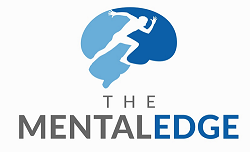The Mental Edge

Whether student-athletes hope to overcome obstacles in their sport(s) or dream of performing in the collegiate or professional level, learning strategies to gain a “mental edge” is important. Mental skills are techniques that help athletes control their minds efficiently and consistently; incorporating these strategies into training can help athletes make adjustments to their actions, thoughts, and feelings to improve their performance. And these strategies aren’t limited just to athletics. Students can use them anytime—getting ready for a test, participating in a math debate, engaging in the performing arts, or any other situation that calls upon them to do their best.
“90% of the game is half mental.”
PROJECT OVERVIEW
Have you thought about what part of your game really is mental? Being a student-athlete is hard and sometimes emotional as we seek to be at our best in the classroom and on the playing fields all the time. Some of our student-athletes may want to find strategies to make the most out of their high school careers by learning how to overcome obstacles and achieve their full potential, all the while enjoying what they do. Others may also have dreams of going on to be a collegiate athlete or even a professional athlete where the mind plays a crucial role in finding success. Mental skills are procedures that help athletes control their minds efficiently and consistently and are techniques that help athletes make adjustments to their actions, thoughts, and feelings to improve their games. Many of same strategies that we can teach to athletes can be used for any performance, whether getting ready for a test, participating in the math or debate team or a music ensemble, or engaging in the performing arts.
With the goal of teaching students mental skills for peak performance, Lani Silversides, instructor in mathematics and Tang Institute Fellow, is working on her project, The Mental Edge. The project introduces to student-athletes techniques and theories in the field of sport psychology that can be used to help enhance personal and athletic performance and growth. With her students she will work on mental skills as they relate to mindset, goal setting, visualization, self-talk, confidence, mindfulness, getting “in the zone,” understanding their emotions, and more. Techniques learned for peak performance in sports can be applied to other aspects of students’ lives at Andover, as students are performing on a daily basis both in and outside of the classroom.
Student-athletes meet with Lani weekly, and there are also alumni athletes at the collegiate level and beyond who are invited to participate. Having our alumni share their experiences with our current students allows for great learning experiences, especially for those that aspire to reach similar levels.
Lani is also working on a lab component of her project. With the help of some new technologies, including HeartMath, students can learn how to take breaths properly in order to lower their heart rate and experience a quicker recovery. These techniques can then be used in a game situation when a quick recovery is needed. The lab will also be experimenting with virtual reality cameras in the Makerspace to create situations in which athletes can “practice” without exerting the same physical energy.
What is sport psychology?
Sport psychology is an interdisciplinary science that draws on knowledge from many related fields including physiology, kinesiology, and psychology. It involves the study of how psychological factors affect performance and how to address optimal performance and well-being for athletes.
Fellow Biography
Lani Silversides (formerly Boardman) came to Andover as an instructor in mathematics and head girls varsity basketball coach in the fall of 2005. Silversides lives on campus with her husband, Steve, associate director of college counseling, and their two young daughters.
A 2001 graduate of York High School in York, Maine, Silversides is the second all-time basketball scoring leader (male or female) with 1,413 points and holds school records with 1,111 rebounds and 299 blocks. She earned 12 varsity letters in high school participating in varsity soccer, basketball, and track all four years. She was also an all-state soccer goalie and state champion hurdler. She was Maine female athlete of the year in 2001.
A 2005 graduate of the University of Vermont, Silversides finished her career ranking among the all-time leaders in 10 different categories. She is one of seven players in school history to score over 1,000 points, grab 500 rebounds and hand out 200 assists. As a senior, she earned America East All-Conference Team honors and was named to the America East All-Championship squad. In 2013, Coach Silversides was inducted into the New England Basketball Hall of Fame in recognition of her contributions as both a coach and player.
In recent years Silversides has grown more and more interested in the mental side of sports and how to coach her players and students to make the most of pressure situations and of their potential. She took Dr. Amy Baltzell’s Counseling Skills and Techniques of Sport and Exercise Psychology graduate course at Boston University in the fall of 2015 and plans to continue graduate work in the field. She is also an affiliate member of the Association of Applied Sport Psychology and a Certified Sport Psychology Coach through NESTA.
From the Blog

It’s March Madness which means brackets have been formed (and busted) everywhere.
